Throwback Thursday is when we trawl through the That's archives for a work of dazzling genius written at some point in our past. We then republish it. On a Thursday.
It is a common misconception that, while the British invented every sport, they are crap at all of them. Don’t get us wrong, the second bit is 100% accurate. But scratch the surface and you’ll discover that it was in fact the Chinese that invented every sport.
That’s right. All of them. Ever.
Take golf. The British – more specifically the Scottish – stake a claim to it. Who would you trust, a whisky-soaked rabble who also declares the invention of the telephone (Italian) and the television (German) as their own, or those impartial researchers at the Chinese Golf Association?
According to evidence from Chinese paintings and books, the game chui wan (ball hitting) predates golf in Scotland by nearly 400 years. In the 11th-century book Dōngxuān lu, author Wei Tai relates how a southern Tang official teaches his daughter to dig goals in the ground and drive a ball into them.

Chui wan became popular during both the Song Dynasty (AD 960-1279) and Ming Dynasty (AD 1368-1664), and emperors could be seen playing with lavish clubs and balls made of gold, jade and pearl.
“Professionals have concluded that golf only arrived in Scotland after it was exported to Europe by Mongolian travelers during the late Middle Ages,” says doctor Cui Lequan, researcher from the China Sports Museum. We bet none of Genghis Khan's generals dared beat him...

The British reckon hockey is theirs too, but for 1,000 years the Daur people of Inner Mongolia have been playing a game called beikou, which entails whacking a more-or-less-ball-like knob of apricot root around with long wooden branches. For night games, there is an ignitable ball covered in felt.
Much, much (much!) later, when the British version of field hockey came to China, the Daurs recognized it as a Flash Harry version of their ancient and noble – if rustic – game, and took it up instinctively; five of the players on the 2008 Chinese Olympic men’s team came from the area.
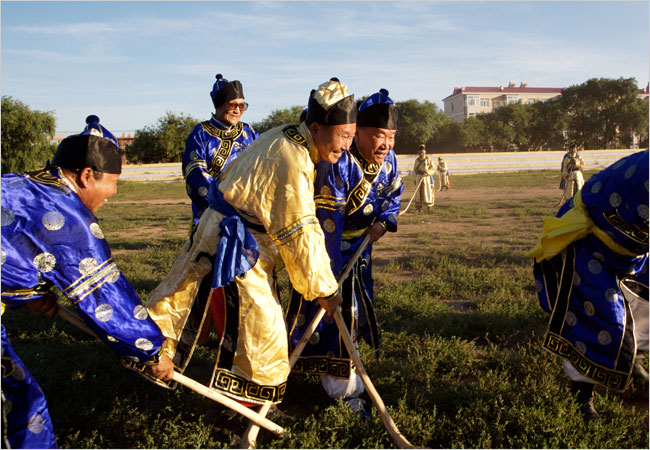
Perhaps most controversial of all is those belligerent Brits' claim to football. As world governing body FIFA have clearly established, football was being played in China when the people of Britain were still wiping their arses on the nearest tree stump.
Known as cuju, the game is mentioned in two historical texts, the Zhan Guo Ce and the Records of the Grand Historian, both written well before Jesus was even a twinkle in the Big Man in the Sky’s eye.
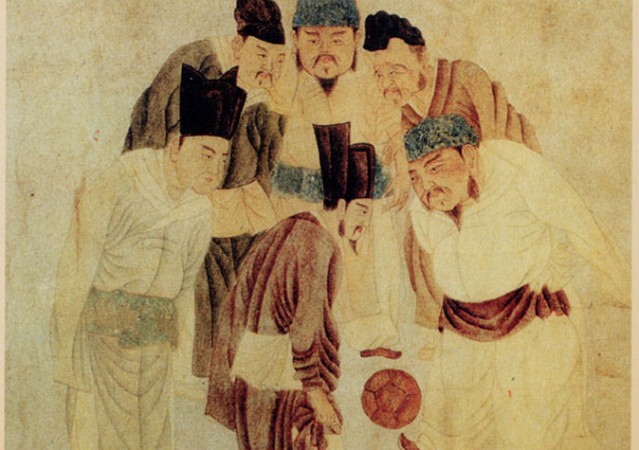
They record that during the Warring States Period (403–221 BC) the people of Linzi, capital of the State of Qi, enjoyed playing cuju recreationally, as well as considering it a military training exercise and means for soldiers to keep fit.
In a move that predates the 1914 no man’s land England-Germany Christmas Truce classic by over two millennia, after leading his troops north to attack the nomadic Xiongnu, the general Huo Qubing (140–117 BC) allowed his soldiers to construct a playing field for a kick about.
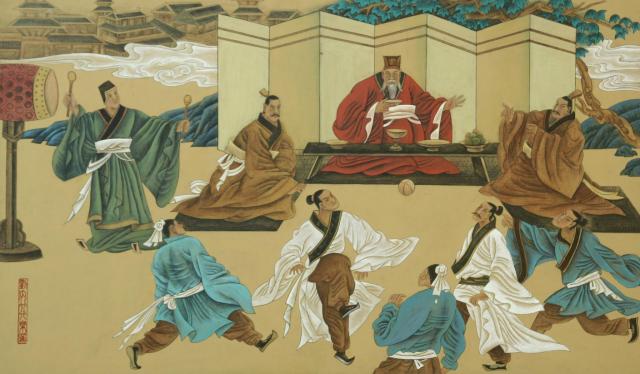
The list goes on, with both archery and cauldron lifting (think precursor to World’s Strongest Man) having emerged from the arena of war as sports activities in their own right by the time of the Western Zhou Dynasty (1066-771 BC), while reports of jiaodi, an early form of wrestling in which athletes wearing horns imitating wild oxen, predate the ancient Greek Olympics by hundreds of years.
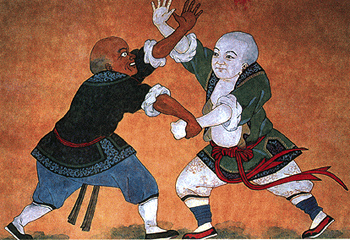
It’s not all namby pamby games either; according to a book named Wuzazu, written by Xie Zhaozhi in the late Ming period (1368-1644 AD), testosterone-fueled, table-smashing games of dominoes can trace their roots back to a set of tiles presented to the imperial court in 1112.
And it doesn’t bear thinking how many petty squabbles could have turned nasty had warlords of Later Han (947–950 AD) not invented a game called shoushiling. Translated as ‘hand command,’ it has become popularized around the world as the most judicious of dispute adjudicators: Rock-paper-scissors.
This article first appeared in the October 2009 issue of That's Shanghai. To see more Throwback Thursday posts, click here.
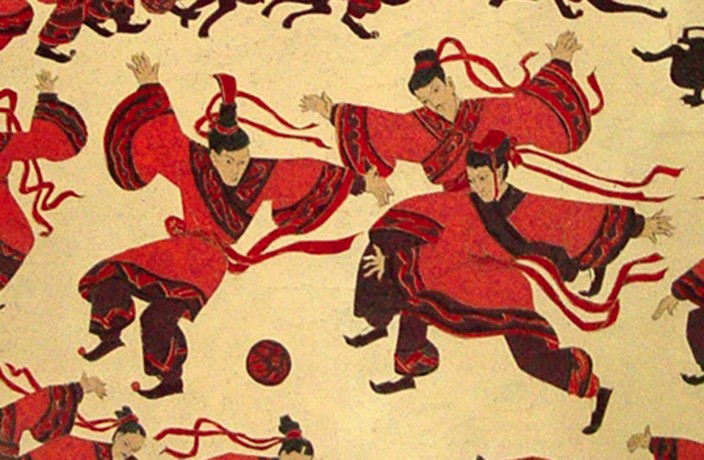





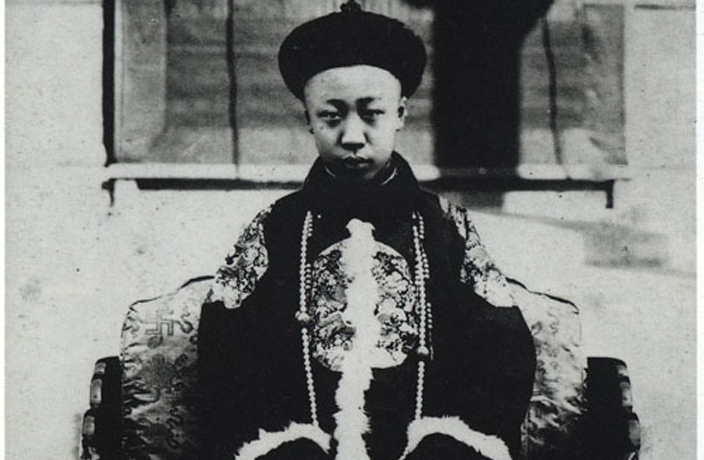














0 User Comments